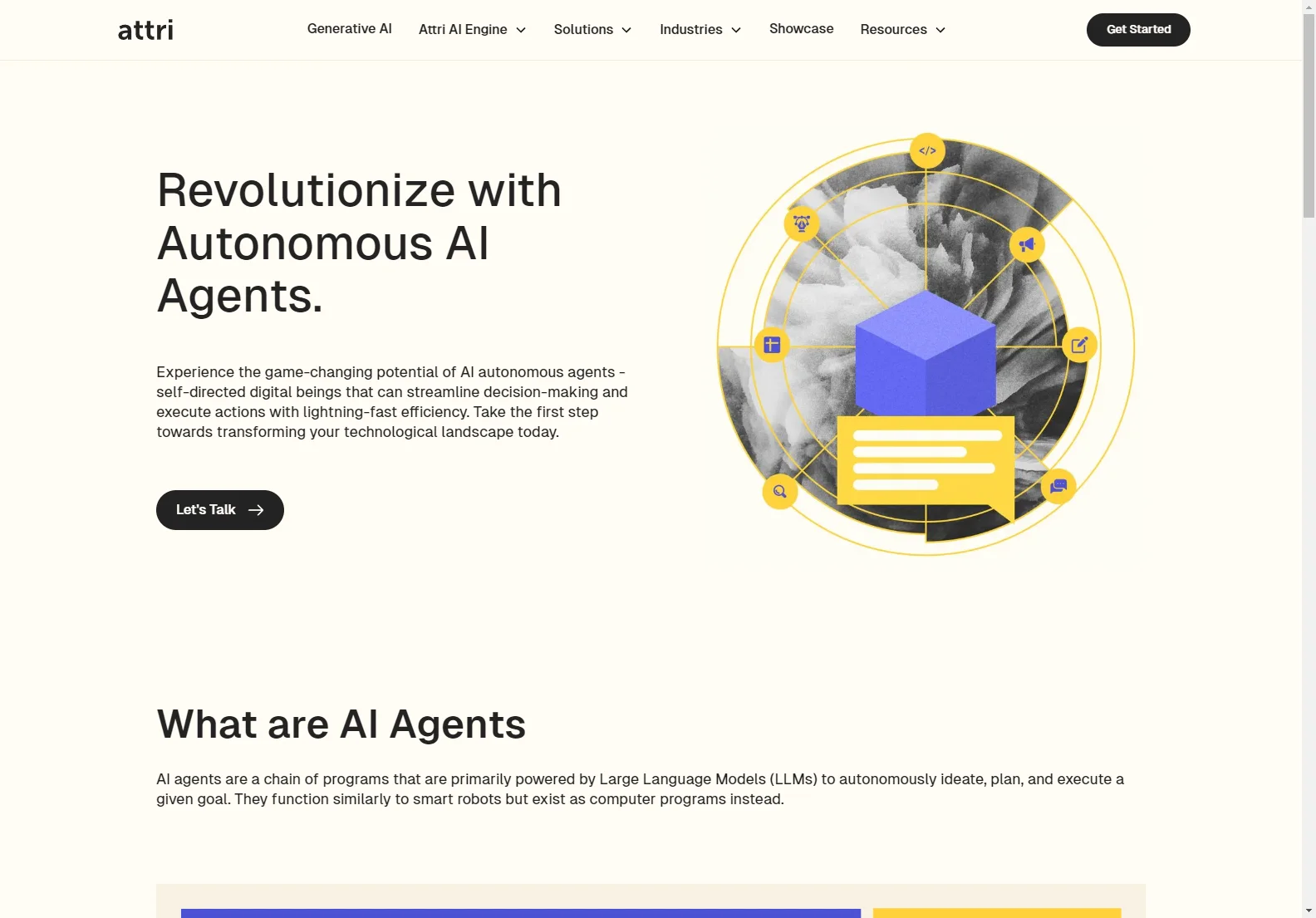Autonomous AI Agents: Revolutionizing Efficiency
Autonomous AI agents are transforming how businesses operate, offering unprecedented levels of efficiency and automation. These self-directed digital entities, powered by Large Language Models (LLMs), can plan, execute, and adapt to achieve defined goals. Unlike traditional programs, AI agents possess a degree of autonomy, making decisions and adjusting their actions based on real-time feedback and changing priorities.
Key Features of AI Agents
- Autonomous Decision-Making: AI agents analyze situations, determine the best course of action, and execute tasks without constant human intervention. This allows for faster response times and proactive problem-solving.
- Priority-Based Action: They dynamically adjust their task order based on importance, ensuring that critical objectives are addressed first. This optimizes resource allocation and maximizes efficiency.
- Enhanced Efficiency and Effectiveness: By automating repetitive or complex tasks, AI agents free up human employees to focus on higher-level strategic work, boosting overall productivity.
- Human Focus: The automation provided by AI agents allows human workers to concentrate on creative, strategic, and interpersonal aspects of their roles, leading to increased job satisfaction and innovation.
How AI Agents Work
The process typically involves:
- Goal Definition: The user clearly defines the desired outcome or objective for the AI agent.
- Task Creation: The AI agent generates a list of actions needed to achieve the goal, breaking down complex tasks into smaller, manageable steps.
- Memory Integration (Optional): For more complex tasks, the AI agent may integrate with a vector database to store and retrieve information, improving its decision-making capabilities.
- Self-Criticism and Adaptation: After completing each task, the AI agent evaluates its success in relation to the overall goal. This feedback loop allows for continuous improvement and adaptation.
- Task Prioritization: Based on the self-criticism and overall goal, the AI agent dynamically re-prioritizes tasks to optimize efficiency and ensure the goal is met.
- Continuous Execution: The agent continues to execute tasks in a loop until the defined goal is successfully achieved.
Real-World Applications
AI agents find applications across various industries, including:
- Customer Service: Providing instant, personalized support and resolving customer issues efficiently.
- Project Management: Automating task assignments, tracking progress, and identifying potential roadblocks.
- Data Analysis: Processing large datasets, identifying trends, and generating insightful reports.
- Marketing and Sales: Automating marketing campaigns, personalizing customer interactions, and improving sales conversion rates.
Comparing AI Agents to Other Technologies
While AI agents share similarities with other technologies like robotic process automation (RPA), they offer a more advanced level of autonomy and adaptability. Unlike RPA, which primarily focuses on automating pre-defined tasks, AI agents can learn, adapt, and make decisions based on changing circumstances.
The Future of AI Agents
As AI technology continues to advance, AI agents will become even more sophisticated and capable. We can expect to see wider adoption across various industries, leading to increased efficiency, productivity, and innovation.

